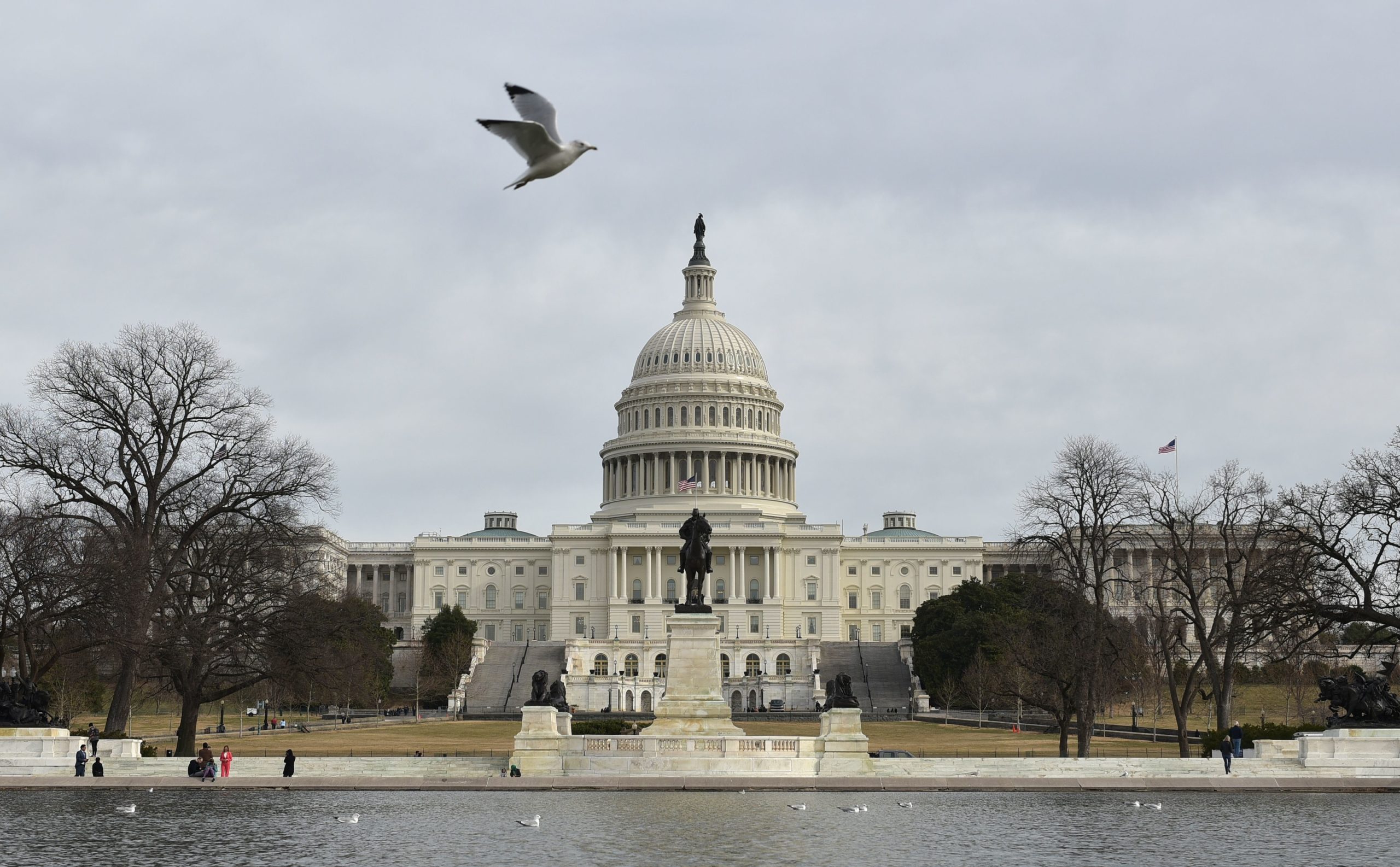Press Releases
Credibility Default: Republican Senators Supporting MAGA House Default Bill Backed Trump Ceiling Increases

Today, Accountable.US released an analysis showing several Republican Senators signed a letter supporting the MAGA House’s extreme default bill despite having previously backed raising the debt ceiling numerous times under former President Trump.
The legislation, described as a “ransom note” because it holds the economy hostage until their demands are met, includes deep and harmful cuts aimed directly at millions of seniors, veterans, workers, children and the food insecure, while leaving in place debt-ballooning tax breaks for billionaires and giant corporations.
Republican Senators had no problem raising the debt ceiling under Trump if it meant protecting massive tax cuts for billionaires and powerful corporations. It would be hard to take this political stunt seriously if the consequences weren’t so dire for the American people. The MAGA House’s extreme default bill is a lose-lose proposition: extreme cuts that especially hurt veterans and seniors -- or a default crisis that wrecks the economy and hurts these communities in other ways. It is time to stop the games and pass a clean bill that pays the nation’s bills without cruel cuts.”
Kyle Herrig, president of Accountable.US.
Last week, 43 Republican Senators sent a letter to Senate Majority Leader Chuck Schumer stating they were “united” behind the MAGA House default bill and they would “not be voting for cloture” if the bill to raise the debt limit does not include “substantive spending and budget reforms.“
During the Trump Administration, Republicans in the Senate voted three times to suspend or raise the debt ceiling. A review of votes by Accountable.US found that 26 of the letter’s signatories voted to raise the debt ceiling at least once during the Trump Administration, and 11 voted all three times to suspend or raise the debt limit as members of the House or Senate:
Sen. John Barrasso (R-WY)—chair of the Senate Republican Conference—voted all three times to suspend or lift the debt limit under President Trump.
Sen. John Boozman (R-AR)—who signed onto the Republican letter affirming support for the U.S. House bill—previously said he did not want debt ceiling fights to shut down the government or prevent it from “paying our bills.”
Sen. Shelly Moore Capito (R-WV)—who signed onto the Republican letter—voted in support of raising the debt limit in 2019, saying it’s not in “anybody’s best interest to have” a debt ceiling fight that close to the deadline.
Sen. John Cornyn (R-TX)—who joined Republicans in their letter to Sen. Schumer—said in 2019 that one of the most important effects of getting a deal passed was to “provide stability for our nation” and avoid a potential government shutdown.
Sen. Kevin Cramer (R-ND)—who signed onto the Republican letter and voted twice as a member of the House to raise the debt ceiling and once as a Senator—said in July 2019 it was important to raise the debt ceiling “at some point,” adding not doing so would be “a cascading problem of an economic response” and “would have ramifications for the stock market.”
Sen. John Hoeven (R-ND)—who joined fellow Republicans affirming support for McCarthy’s plan—supported the August 2019 budget deal and released a statement that praised the deal as “‘fund[ing] the government and ensur[ing] our nation meets its financial obligations.”‘
Sen. Minority Leader Mitch McConnell (R-KY)—who signed onto the Republican letter—urged Congress during 2019 floor remarks to vote in favor of the Bipartisan Budget Act of 2019, stating Congress “need[ed] to address the debt limit and secure the full faith and credit of the United States.“
Sen. Mike Rounds (R-SD)—who signed onto the Republican letter—said Republicans “need to support” President Trump by raising the debt ceiling, praising the August 2019 deal for “prioritiz[ing] veterans while simultaneously avoiding a default on our debt.
Sen. John Thune (R-SD)—the current Senate Minority Whip—stressed the importance of raising the debt ceiling in 2019 to “fund the government and make sure we don’t default on our obligations.”
Sen. Roger Wicker (R-MS)—who signed onto the Republican letter—had faith in 2019 that “in the end there will be enough members to do the responsible thing” by joining him in voting to raise the debt ceiling.
Sen. Todd Young (R-IN)—who joined Republicans in signing the letter to Sen. Schumer—praised the 2019 debt ceiling increase as “provid[ing] funding certainty for our armed forces and ensur[ing] our military readiness.“
